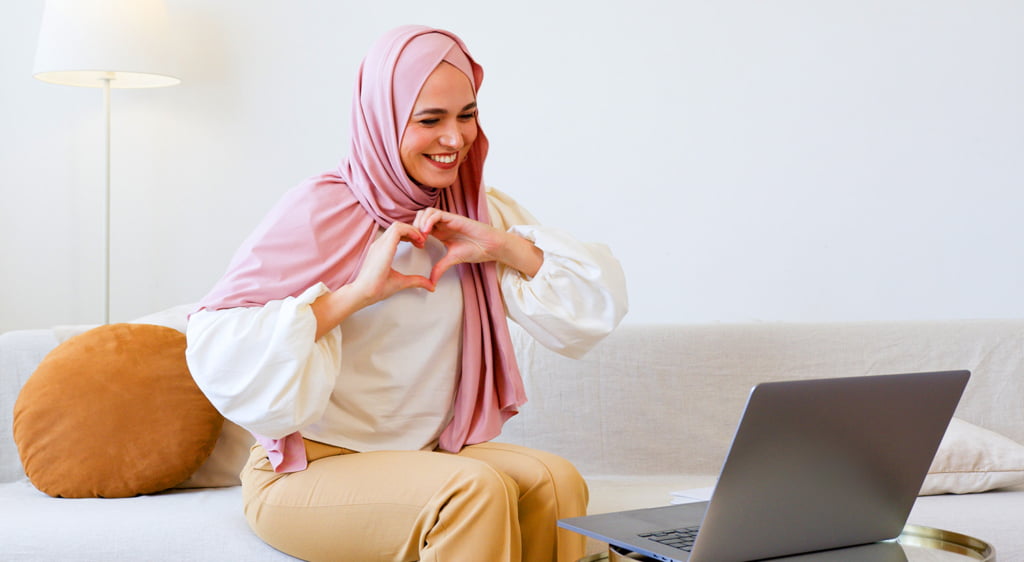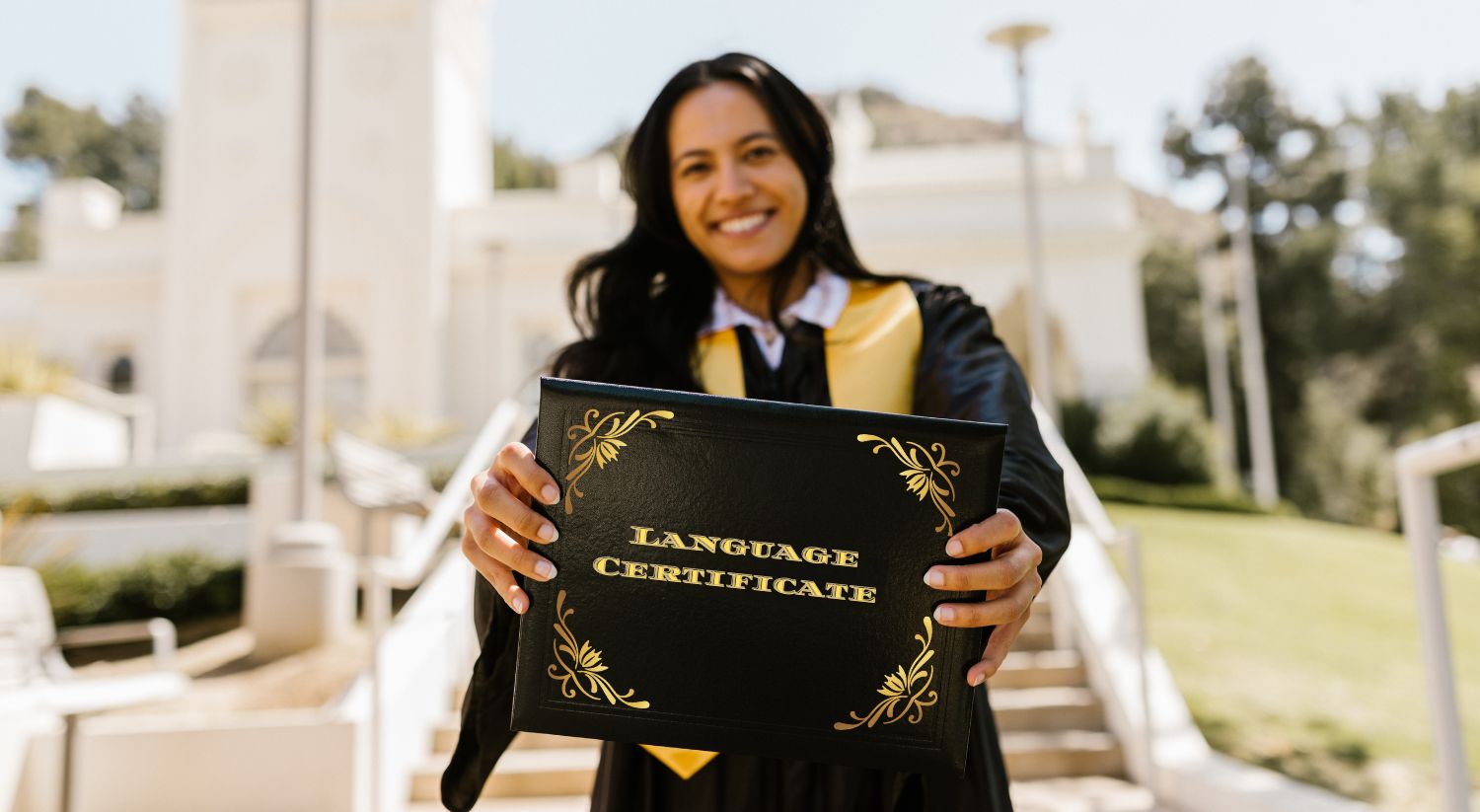
Starting with basic Arabic phrases, particularly greetings and farewells, is crucial for anyone looking to become proficient in using Arabic for everyday situations.
This article offers a comprehensive guide to the most commonly used Arabic phrases that will enhance your communication and facilitate better integration.
Greetings and goodbyes : Arabic for everyday use
As-salamu alaykum – This Arabic greeting, written as السلام عليكم, means “Peace be upon you. It’s a warm form of greeting within the Arab community. The typical response is وعليكم السلام (Wa’alaykum as-salam – And peace be upon you too).
Informal Greetings – While expressions such as صباح الخير (‘sabah alkhayr’ – good morning) or مرحبا (‘marhaba’ – hello or welcome) are common in the West, they are considered informal for everyday use in Arab culture.
Greetings Among Friends and Family – Words such as السلام (“Salam”, meaning “peace”) and “Marhaban” are appropriate among non-religious friends and family, reflecting an atmosphere of trust.
Greetings
| English | Arabic |
|---|---|
| How are you? | كيف حالك؟ |
| Hello, friend | أهلاً صديقي |
| Good evening | مساء الخير |
Farewells
| English | Arabic |
|---|---|
| Goodbye | مع السلامة |
| See you later | إلى اللقاء |
| Good night | ليلة سعيدة |

Arab greeting customs
Another aspect to consider to start a conversation on the right foot is to know certain customs and traditions of the Arab culture to avoid embarrassing situations.
Avoid physical contact with the opposite sex:
It is not very common for men and women to touch when greeting each other, unless they are close relatives. Some women are willing to shake hands with men in more formal settings.
If you are a man, let the woman take the initiative. When greeting a woman, stand away from her. If she is willing to shake your hand, she will extend it to you.
If she clasps her hands or places her right hand over her heart, it is a sign that she is unwilling to shake your hand but is pleased to meet you.
Touching noses
In Arab culture, touching noses is not considered a particularly intimate gesture and is often performed between two men, as well as between two women.
Another popular gesture in some areas is to give 3 kisses on the other person’s right cheek.
These gestures are usually never appropriate with someone of a different sex unless they are related and have a very close relationship. Even then, many Arabs would not consider such a greeting appropriate in public.
Elders are greeted with a kiss on the forehead
In Arab culture, elders are highly respected. You show your respect by kissing them on the forehead. Save this gesture for an elder you know well or an elder relative of someone you know well.
Understanding the daily Arabic greeting customs will not only help you avoid awkward situations, but will also show your respect and appreciation for the Arabic culture.
Ask for help expressions
If you are traveling or working in an Arab country, you may need medical assistance to solve any unforeseen problems that may arise.
These basic phrases and expressions in Arabic for everyday use will help you communicate with doctors to facilitate a quicker and more efficient solution.
Health and Emergencies
| English | Arabic |
|---|---|
| It hurts here | انها تؤلمني هنا (anaha tulimuni huna) |
| Where is the hospital? | أين المستشفى؟ (‘ayn almustashfaa?) |
| I need to see a doctor | أنا في حاجة لرؤية طبيب (‘ana fi hajat liruyat tabib) |
| I don’t feel very well | لا أشعر أنني بحالة جيدة (la ‘asheur ‘anani bihalat jayida) |
| Help! | يساعد! (yusaeid!) |
| I am lost | أنا تائه (‘ana tayih) |
Basic questions and phrases
There are other phrases and expressions in Arabic for everyday use that you should know in order to start a conversation with anyone and that will help you answer small questions you may have, such as how to get to a certain place or the price of a food item in the market.
Common Phrases
| English | Arabic |
|---|---|
| If God wills | إن شاء الله (In sha’llah) |
| I’m sorry, how much does this cost? | آسف، كم تكلفة هذا؟ (Asif, kam taklifat hadha?) |
| Do you speak another language? | هل تتكلم لغة أخرى؟ (Hal tatakallam lughatan ukhra?) |
| Where are you from? | من أين أنت؟ (Min ayn ant?) |
| Where is this street located? | أين يقع هذا الشارع؟ (‘Ayn yaq’ hadha al-shari’?) |
| Where can I buy rice? | أين يمكنني شراء الأرز؟ (‘Ayn yumkinuni shiraa’ al-‘arz?) |
| Excuse me (to ask someone to move) | العذر (Al-ma’dirah) |
| I’m sorry | أنا آسف (‘Ana asif) |
| Please | من فضلك (Min fadlik) |
| Thank you | شكرا (Shukran) |
| You’re welcome (response to thank you) | عفواً (Afwan) |
| No problem | لا مشكلة (La mushkila) |
| Cheers! | في صحتك! (Fi sihatik!) |
| Bon appetit! | شهية طيبة (Shahiat tayiba) |
| I love it! | أنا أحبه! (‘Ana uhibbuh!) |
| I’m just looking | أنا فقط أتفحص (‘Ana faqat ‘atifhis) |
For English speakers who need to communicate basic phrases in Arabic, this chart can be a handy reference.
Finally, here is a summary in video format of some of the Arabic phrases for everyday use that we mentioned above and others that we think may be useful to you.
REMEMBER !!!
You can download our available apps for translating and learning languages correctly available for free on googleplay and applestores.
Do not hesitate to visit our Talkao website and contact us with any questions or problems you may have, and of course, take a look at any of our blog articles.











Newsletter